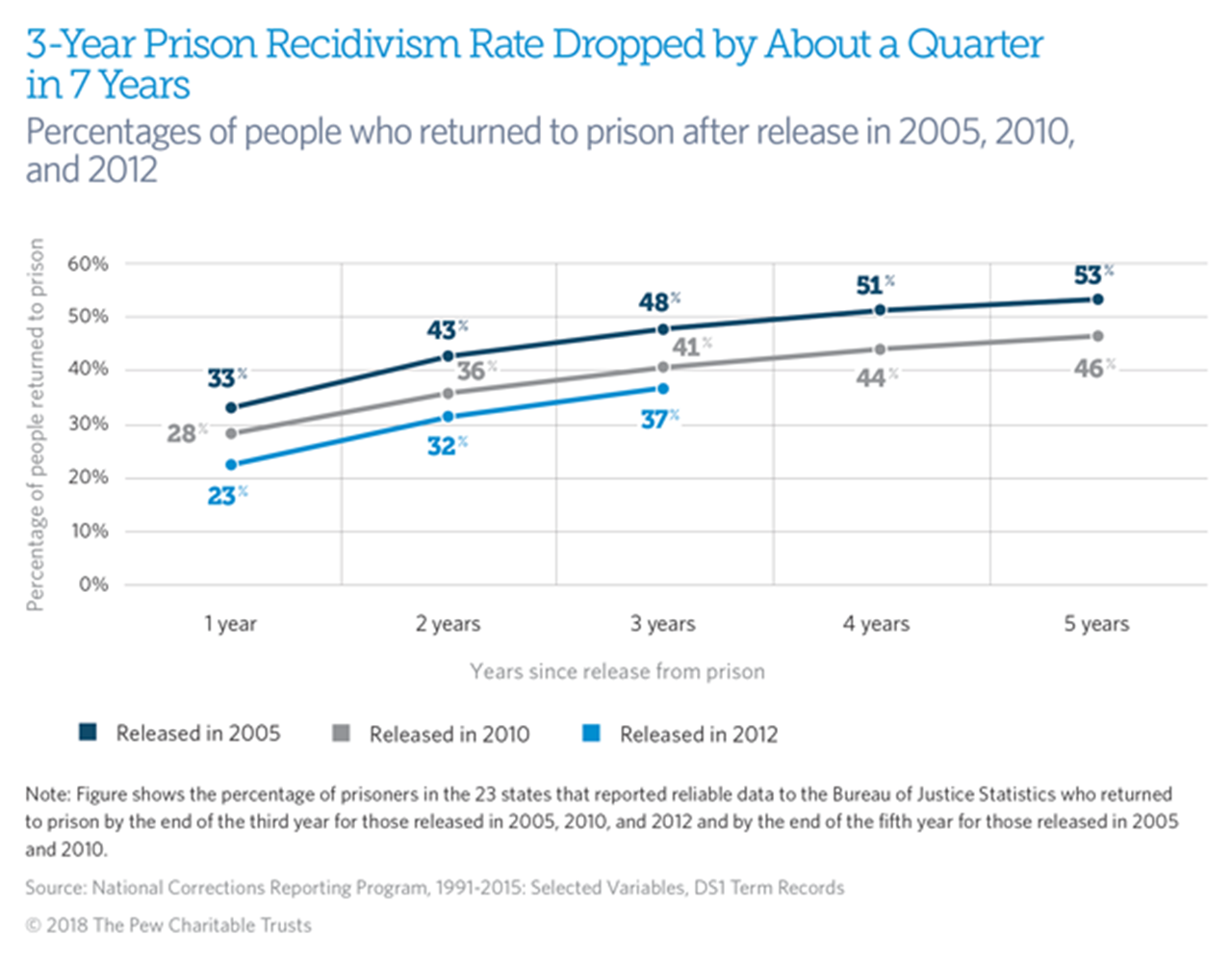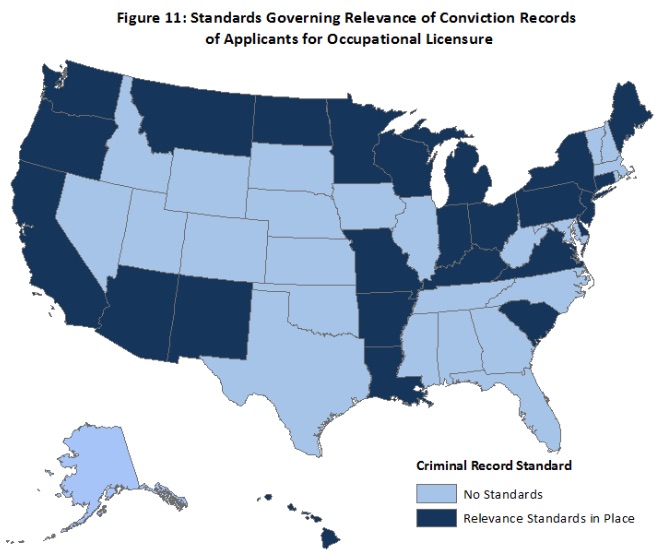
The Pew Charitable Trusts has an encouraging study out on “The Changing State of Recidivism: Fewer People Going Back to Prison.” The study analyzes trends in recidivism (i.e., when someone who has been released from prison continues in crime so as to return to prison) in the states.
States voluntarily report these data to the federal Bureau of Labor Statistics, and the Pew study centers on the 23 states (including North Carolina) that have reported these data throughout the study period of 2000–15.
The headline finding is that over the past seven years, the three-year recidivism rate (the percentage of those who are released from prison returning within three years) has fallen by about a quarter:
Among prisoners released in 2005, 48 percent returned to prison by the end of 2008. By comparison, among those released in those states in 2012, 37 percent had at least one new prison admission by the end of 2015. That translates into a drop of 23 percent. The states included in the analysis accounted for about two-thirds of those released from state prisons nationwide each year.
Longer-term recidivism also fell. Prisoners released in these states in 2010 were 13 percent less likely than the 2005 cohort to return to prison at least once by the end of the fifth year after release. Included in these numbers are people sent back to prison for a new crime or for violating the terms of their post-prison supervision.
Pew points out that this coincides with a reduction in crime in general: “Pew’s analysis of FBI crime statistics shows that the combined national violent and property crime rate dropped 26 percent from 2005 to 2015.” (I’ve discussed this long-term trend before as it contrasts sharply with media and leftist arguments and assumptions about gun ownership in the U.S.)
The report includes this chart, which shows the lessening in recidivism:

What these findings also suggest is that most people who have been released from incarceration are what we would consider rehabilitated; that they want to become productive citizens and stay out of prison. This is an outcome civil society should encourage. And one of the best ways for them to do so is to find work.
Unfortunately, for too many professions, especially in North Carolina, it’s an outcome that occupational licensing boards have made unreasonably difficult.
I discussed that problem in a 2017 research brief on a National Employment Law Project report on states’ disqualifications from getting occupational licenses for having a conviction record. Here’s a snippet:
Conviction records make it harder to find work in general, because most employers require background checks. … Since an occupational license is an entry barrier to entering a field of work, its effect is worse than a potential employer deciding not to take a chance. It takes that choice away from all potential employers in the field and doesn’t even leave the would-be worker the option of self-employment.
Here are the report’s data for North Carolina:
- Over one million people (15 percent of the adult population) with arrest or conviction records
- 22 percent of the workforce employed in fields where they are required to have an occupational license
- Over 16,000 people released from prison in 2015, an amount nearly 70 percent higher than in 2000
- 641 separate disqualifications in state occupational licensing laws for having a conviction record (North Carolina has the 11th most disqualifications in the country; second in the Southeast)
Those figures attest to several things: There is a significant and growing number of people in North Carolina who want to work but who have conviction records. A great many jobs out there — more than one-fifth — require an occupational license. But the state has a surprisingly large number of legal stops keeping a license from someone with a conviction record.
How big is that “surprisingly large number” of disqualifications from receiving a license in a person’s chosen field of labor does North Carolina have? How does it compare with surrounding states? This chart addresses those questions:
Number of disqualifications in state occupational licensing laws preventing someone with a criminal record from getting a license (Southeastern states)

It is certainly true that some criminal convictions are relevant to whether a person should be able to get a license in a certain profession. Many others would not be. North Carolina lacks a way to differentiate relevant convictions in licensing disqualifications, however:

It’s an unfortunate reality working at cross purposes with civil society’s better interests in helping the newly rehabilitated make an honest living. It’s yet another sign that North Carolina needs a thorough modernization of its outdated occupational licensing system.




